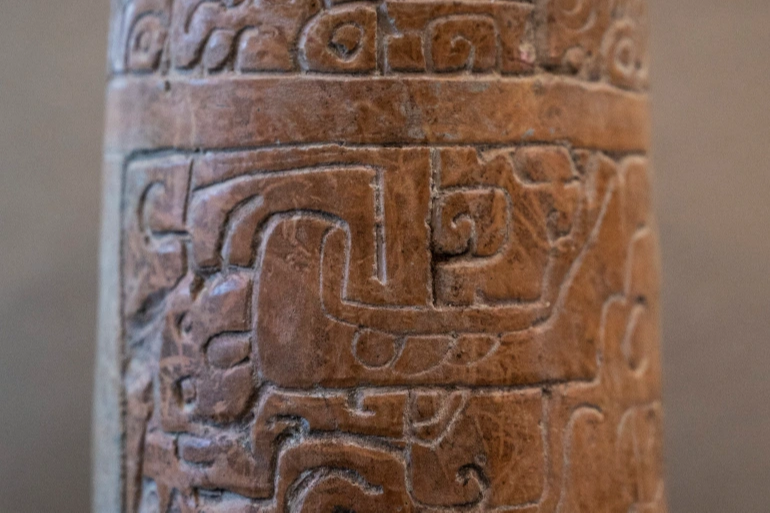
View of a cup, or drinking vessel, part of a small trove of Mayan cultural artefacts that were handed over to Mexico and Guatemala in Berlin [Photo by John MacDougall/ AFP]
Guatemala City, November 7 (RHC)-- Germany has returned a collection of ancient Mayan artefacts to Guatemala and Mexico after police found them stashed in the cellar of a farmhouse in Saxony-Anhalt state last year.
The 13 objects include vases, figurines and plates and date back to between 250 and 850 CE, the regional government of Saxony-Anhalt said.
State premier Reiner Haseloff handed them over to Guatemalan ambassador Jorge Lemcke Arevalo and Mexican ambassador Francisco Quiroga at a ceremony in Berlin on Friday. Eleven of the objects were made in what is now Guatemala but they also include two figurines from Teotihuacan, the largest city in pre-Aztec central Mexico, located about 40 kilometres (25 miles) from Mexico City.
“This gives us hope that other owners of similar pieces in private collections will follow the same path” of returning them, Arevalo told a news conference. Quiroga called the gesture an “outstanding example.” “Illegal trade in cultural objects must be stopped and combated,” Haseloff said, adding that the handover was intended to raise awareness.
“Objects pillaged or stolen from former colonies can be found not only in museums, but also in our cellars or attics,” he said. The farmhouse’s previous owner had buried the Mayan treasures in a box in 2007 along with two World War II rifles that had belonged to his grandfather.
He contacted police in 2020 to confess the box could be found in the cellar of the farmhouse, saying he wanted to comply with the law on handing over illegal weapons. Police found the guns but to their amazement, also uncovered the objects wrapped in newspaper, local prosecutors said. The man said he was unaware of the objects’ provenance or of their real value.
According to the Saxony-Anhalt authorities, the objects were probably stolen by grave robbers in Guatemala and Mexico before being sold on the black market.

